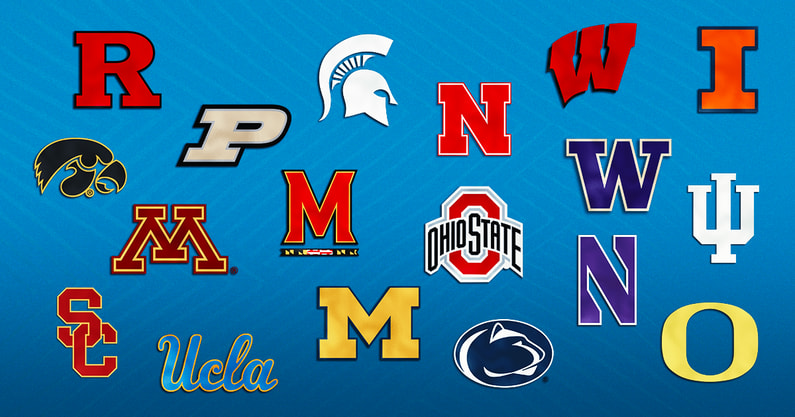Lauren Heinemann is a self-described “Achievement Partner” who specializes in steering companies and individuals through transformational change. In her work with individuals and corporations, Lauren provides personalized career pathing and leadership development to propel her clients forward in their careers.
In today’s installment of On Point with PREMINENTE, A Survival Guide for the Quarter-Life Crisis, we talked with Lauren about the phenomenon of the “quarter-life crisis” that seems so prevalent amongst young professionals today. Wikipedia defines the quarter-life crisis as, “A crisis involving anxiety over the direction and quality of one’s life which is most commonly experienced in a period ranging from a person’s early twenties up to their mid-thirties.” We asked Lauren about the factors that are contributing to this unfortunate stress on young people, how the issues can be managed or – even better – avoided, and how she guides her clients through the transformational change that happens when they marry their personal passions with their professional strengths.
It seems like every 20- or early 30-something is going through a quarter-life crisis, questioning many of the choices they’ve made in their career and relationships. What are some of the pressures and challenges young people are experiencing leading to this level of anxiety and dissatisfaction in their lives?
There may be a myriad of things that contribute to this feeling of what I call “paralytic purgatory.” One big contribution is the concept of “choice.” It comes at young professionals from two opposing ends of a spectrum.
- First, there is the amount of choice that is at one’s fingertips, the options are vast and can be confusing.
- Second, there’s often a feeling that your early career choice defines who you are and what course the rest of your life will take.
- Finally, many individuals are also choosing a significant other to build a life with, and in many cases a geographic region in which to “settle down.”
These three choices are huge, especially if they then guide the next 5+ decades of your life. The prospect of landing in one particular direction while still learning about oneself can be a decision load that feels untenable.
Imagine embarking on these big-ticket life changing decisions with the added layer of a global pandemic. Once upon a time we were in an office together, leaning over the shoulder of a colleague or boss, creating together. So much of learning about oneself happens through engaging with others, having that tangible exchange of energy and absorption of experience. The same pressures for this age group are still present, but now there’s even more weight as we’ve gone from a business culture of socialization to solitude.
Has the job market for young professionals changed or is it their expectations that have evolved?
Absolutely a bit of both. What companies are looking for is evolving…the transition from massive teams and layers of employees started to make a shift several years ago. Many organizations want to pay for less people, having the few they work with be more experienced. This trend made mid-level executives very desirable: they can do the work, aren’t too seasoned, and are able to carry the weight of the staff that would have been below them. Naturally, this makes it harder for new-to-market talent to find positions that allow for the learning curve.
The other trend is that this generation wants and expects a lot more out of a job than what was on the table 20+ years ago. Flexibility, equality, diversity, competitive pay, ample time off, opportunity to learn and earn a skill set…all while having a “balanced” work-life experience. We should all strive to have these as part of our working world, it just used to take longer to acquire them versus expecting it all right out of the gate.
Despite the challenges they are facing, I’ve been extremely impressed with young talent over the past handful of years. Taking knowledge and applying it at a broader level seems much more innate to this generation than those before them. Individuals who have confidence in their knowledge, a willingness to share what they know for the benefit of the company/team, and recognize that they don’t “know it all” are the ones who I see making a penetrable impression and subsequently moving up the ladder more quickly.
You describe yourself as a “seasoned ACHIEVEMENT PARTNER who specializes in steering companies and individuals through transformational change.” How do you approach the work with your clients to help them realize their professional and personal goals?
My approach is always to take a step back, and then lean in and listen. Whether it be with an individual or a company, my first course of action is to learn. For an individual, I want to know about who they are as a person well beyond their job or career interests. Who are they at their core, where did they come from, what are their visceral interests, deepest desires, and foundational fears. For organizations, I typically conduct a “Listening Tour,” speaking with a variety of functions and levels to get under the hood of what’s going on both culturally and operationally.
Because I’ve been exposed to many different functions, company cultures, operating styles, and individuals over my career, I’m able to join these conversations with an open mind and some perspective. After learning about the individual or the company, I often recommend a series of assessments and/or trainings that are then used to develop individualized plans. For some clients I can act as their proxy, fueling change more quickly than one can do alone. For some clients I act as a mentor and guide facilitating self-awareness, strength, and growth.
Taking the optimistic outlook that the quarter-life crisis is avoidable, what steps do you recommend a college student or recent graduate take to ensure they are on a path that aligns with their strengths and passions?
It’s not avoidable, but it is surmountable. There are more people out there suffering from this crisis than you’d imagine. My advice would be rather than avoiding it, attack it head on. Know it’s out there, know you’re not alone, know there are ways to help yourself. Find someone who you can trust, a professional or a friend/family member. Have that brutally honest look-yourself-in-the-mirror conversation. Put it all out there. It’s much more effective to do this now – consider it the beginning of a healthy life-long practice. Doing this doesn’t mean you’ll find your forever career, perfect partner, or location for life. Just have faith that taking charge of your current situation and desired future in an authentic way sets you up for a lifetime of being able to constantly pivot toward your desired destiny.
If you could provide one piece of advice to a young professional who is realizing they need to make a change, what would it be?
Don’t wait. Face your fears. Get vulnerable. Take charge. Make the change.
Contact us today to explore how you can start your journey!
Contact us!
https://www.laurenheinemann.com/
917-881-1070
preminentecollegecounseling@gmail.com
(917) 446-1987


